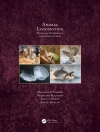This book highlights information derived primarily from clinical samples, with particular reference to theoretical and scientific aspects of the human immune system. This text will focus on topics that range from host-pathogen interactions in infectious disease to host immune response in cancer, allergic diseases, neuroinflammatory diseases, and autoimmune disorders. The reader will also have a well-rounded understanding of the behavior of the immune system with particular emphasis on the role of immunoproteomics in immunotherapy, neuroprotective immunity for neurodegenerative and neuroinfectious disease, leukemia-associated dendritic cell induction of adaptive immunity dysregulation, and the role of immune checkpoint inhibitors in cancer, infection, as well as neuroinflammation. Taken together, the contents of this book are intended for both clinicians and researchers in academia and industry.
विषयसूची
1. Human Chronic Viruses: Pathogenesis, host response, and treatment.- 2. Defining the Role of Immunoproteomics in Human Immunotherapy.- 3. Microbiome and Cellular Players in Type 1 Diabetes: from Pathogenesis to Protection.- 4. Immune Mechanisms, Pathology, and Management of Allergic Ocular Diseases.- 5. Dendritic Cell-regulated T Cell Immunity and Tolerance against Acute Myeloid Leukemia.- 6. Perspectives on the Role of T cell Negative Immune Checkpoint Receptors in Health and Disease.- 7. Neuroprotective Immunity for Neurodegenerative and Neuroinfectious Diseases.- 8. Polycystic Ovary Syndrome: An overview of a complex, heterogeneous genetic condition.
लेखक के बारे में
Pooja Jain, Ph D, is a Professor in the Department of Microbiology and Immunology as well as Neurobiology and Anatomy at the Drexel University College of Medicine located in Philadelphia, USA. Her research focuses on the host-pathogen interactions underlying Adult T-Cell Leukemia Lymphoma (ATLL) induced by Human T-cell leukemia virus type 1 (HTLV-1). In addition, her Dr. Jain’s laboratory is engaged in testing novel targets for myeloid cell-immunotherapy against neuroinflammtory diseases such as Multiple Sclerosis and HAM/TSP (HTLV-associated myelopathy/tropical spastic paraparesis). Lishomwa C. Ndhlovu, Ph D, is a Professor at the John A. Burns School of Medicine, University of Hawaii. His research focuses on understanding the impact of HIV on the immune system as well as how this host-HIV interaction will inform potential clinical applications in balancing strategies to slow or eliminate HIV infection and optimize quality of life outcomes. Dr. Ndhlovu’s laboratory is alsoinvestigating the role of negative checkpoint regulators (NCR) in HIV, as potential immunotherapy that reverse immune perturbation in HIV.












